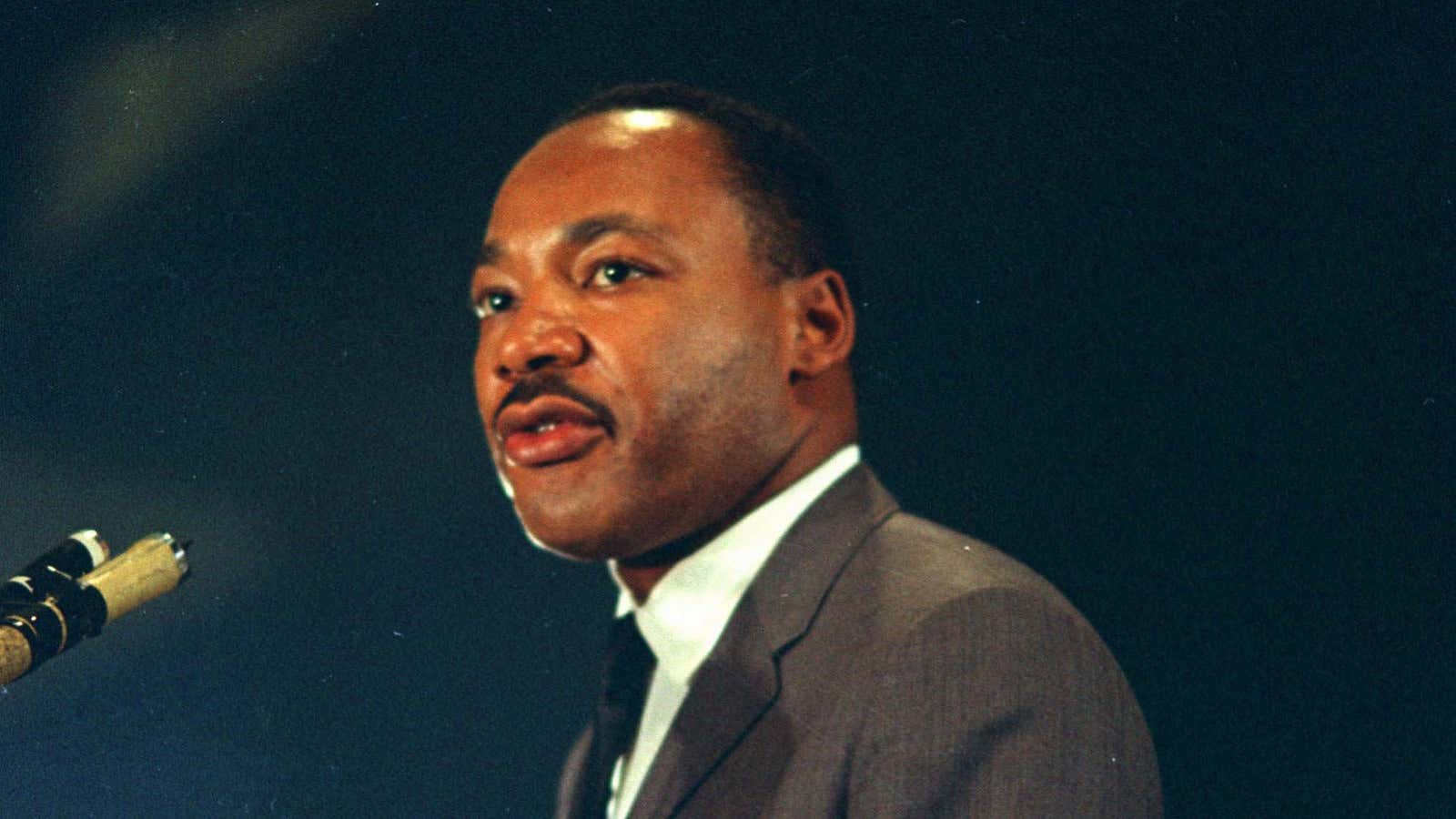Humans aren’t as necessary as they once were for carrying out basic tasks, manual and otherwise. Robots are doing more and more of those jobs, threatening to displace large numbers of workers and prompting experts from economists to Elon Musk to ask whether now is the time to implement a universal basic income, a social safety net that would provide unconditional cash payments to everyone.
While the specifics of the debate have changed—automation is now the force driving it—the debate itself isn’t a new one. Fifty years ago, leading economists and politicians were already talking about the idea, and one of its most powerful advocates was Martin Luther King Jr., who framed it as essential to civil rights for all in the US.
In 1967, the year before he was assassinated, King published a book titled, Where Do We Go from Here: Chaos or Community? In it, King held up a basic income as a solution to the poverty that afflicted people of all races in the United States. “In the treatment of poverty nationally, one fact stands out: there are twice as many white poor as Negro poor in the United States. Therefore I will not dwell on the experiences of poverty that derived from racial discrimination, I will discuss the poverty that affects white and Negro alike,” he wrote. He went on to add that ” the solution to poverty is to abolish it directly by a now widely discussed measure: the guaranteed income.”
The poverty that King spoke of afflicting white and black Americans alike is today threatening those people who have been replaced in offices and on assembly lines by robots that can do the same job more cheaply. Experts have pointed to the “economic anxiety” of voters in the Rust Belt states, where manufacturing jobs have declined steeply, as one of the primary reasons for Donald Trump’s victory. Trump blamed trade policy for the job losses, though the real culprit is technology.
What King spoke of was creating ”economic security,” as he described it in a speech at Stanford the same year his book was published, and he called on the Civil Rights movement to organize around the idea of a minimum annual income for all Americans.
Today, albeit for different reasons, the conversation over a universal basic income has started again, and King’s words are as relevant as ever.
